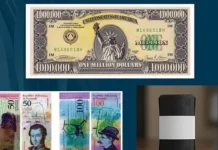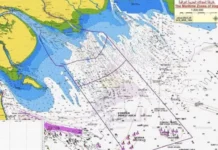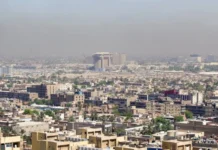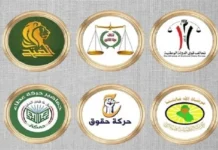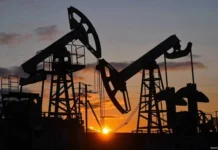Tishwash: Iraq participates in the meeting of the Arab Economic Council
The Arab Economic Committee is scheduled to begin its work today, Monday, to prepare for the 114th session of the Arab League’s Economic and Social Council, which will be held at the ministerial level next Thursday, with the participation of the Minister of Trade, Athir Dawood Salman Al-Ghariri.
Iraq will be represented in the meetings of the Economic and Social Council by two delegations, the first from the Ministry of Labor, which will attend the meetings of the Arab Social Committee, while the second delegation will be from the Ministry of Trade and will participate in the meeting of the Economic Committee.
The Arab Social Committee held its meeting yesterday, Sunday, with the participation of a delegation from the Ministry of Labor and Social Affairs, and a number of decisions were submitted to the Council.
The ministerial meeting of the Economic and Social Council next Thursday, in which the Minister of Trade will participate, will be preceded by a meeting of senior officials in the Council the day after tomorrow, Wednesday.
Assistant Secretary-General and Head of the Social Affairs Sector, Ambassador Dr. Haifa Abu Ghazaleh, stated that the 114th session of the Economic and Social Council began its work with the Council’s Social Committee.
Abu-Ghazaleh added that the Social Committee reviewed the report of the Secretary-General of the League of Arab States, which included all the efforts and activities that took place between the two sessions of the Council in various sectors of joint Arab social and development work.
She continued that the report focused on continuing to implement the social dimensions of the 2030 Sustainable Development Plan, supporting vulnerable groups in society, and other activities related to persons with disabilities and the elderly, health, youth, women, family and childhood, population policies, civil society and human rights, migration and expatriates, education, scientific research, culture and dialogue of civilizations. link
************
Tishwash: Schlumberger signs Iraq Training Agreement
The Arab Institute for Oil and Schlumberger have signed a cooperation agreement at the Iraqi Ministry of Oil, focusing on training and development for the sector’s workforce.
Bassem Mohammed Khudair, the Deputy Minister for Extraction Affairs, stated that this memorandum aligns with the ministry’s strategy to enhance technical and engineering skills.
Schlumberger’s Executive Director in Iraq, Waseem Al-Azmeh, emphasized the company’s commitment to using its expertise to develop the skills of Iraq’s oil sector employees.
Hisham Yass, General Director of the Training and Development Department, highlighted that this partnership is a significant addition to the ministry’s training program, to be implemented through the Arab Institute for Oil, which is responsible for certifying training programs.
Ghaleb Mohammed Ali, the Deputy Director of the institute, expressed hope that this collaboration will help achieve the ministry’s goals in improving the performance of its workforce. link
***************
Tishwash: The Central Bank of Iran sold 320 billion Iraqi dinars to visitors
Iranian media revealed, today, Sunday, that 1.6 million Iranian visitors purchased the Iraqi currency in Iran before heading to Iraq to perform the Arbaeen pilgrimage.
Tala website reported that from August 7 to September 1, more than 1.6 million people received the “Arbaeen Coin”, at a rate of 200,000 Iraqi dinars for each visitor, to meet their needs in Iraq.
He explained that selling dinars to visitors is a very good step, and has been taking place for two years, and saves visitors the trouble of converting their currency in Iraq into Iraqi currency, and Iraqi dinars can be obtained at a certain price for purchase directly from Iranian banks.
The website quotes experts as saying that in general there is no problem in providing the dinar from the point of view of the existence of the Central Bank, and next year the amount will be increased to more than 200 thousand dinars for each visitor.
Arbaeen visitors who travel to Iraq by air can obtain $500 in travel currency in addition to 200 thousand dinars in Arbaeen currency from the ATMs located at Imam Khomeini International Airport.
According to the announced figures, the Central Bank of Iran sold 320 billion Iraqi dinars to visitors entering Iraq, while questions remain about where the Central Bank of Iran gets the Iraqi dinars from, and whether they are one of the payments that Iraq spends on Iran to settle some import transactions that cannot be paid in dollars. link
***************
Tishwash: Al-Sudani’s advisor explains the reasons for the fluctuation of gold prices in Iraq
The financial and economic advisor to the Prime Minister, Mazhar Salih, said today, Monday, that the reasons for the fluctuation of the price of gold in Iraq are not internal, but rather global, indicating that the Iraqi government encourages the import of gold because it is a “safe haven” for wealth.
At the state or individual level, gold has historically been a safe haven for preserving the purchasing power of wealth, as people keep gold for that purpose, and the cycle of gold assets between rising and falling is usually slow. If we take the cycle of assets, we find gold, almost as an average, as it is of constant value among other wealth,” Saleh told Al Furat News Agency, explaining that “society has historically been accustomed to keeping gold as a tendency to preserve personal wealth.”
He added, “In the modern era, the state keeps part of its foreign reserves supporting the national currency in gold. For example, Iraq keeps about 148 tons of gold, which constitutes 10% of its foreign currency reserves.”
During the past month of February, Iraq’s gold reserves witnessed a significant increase, as data from the International Monetary Fund showed that Iraq had increased its holdings of the precious metal by 3,079 tons, bringing the total to 145,661 tons.
He continued, “The reserves are a diversified investment portfolio of gold and currencies such as the dollar, euro, pound, yuan, yen, and others,” describing this diversity as “based on basic global evidence, and it is not arbitrary.”
He pointed out that “this evidence was made in agreement with the International Monetary Fund, in terms of the percentages of monetary gold that support and are considered a cover for the Iraqi dinar.”
He stressed that the global standard for this is 10%, considering gold “not easy for fast payment operations and others, and it is heavy, but it is part of protecting reserves and confronting fluctuations in currency values.”
He explained that “the gold asset cycle is slow, so keeping it protects reserves from currency fluctuations. Iraq is not a maker of gold prices in global markets, but rather a recipient, because we are not a country that possesses gold wealth, but rather we import gold. Therefore, the entry of gold into
Iraq is a good wealth that is better than the entry of consumer goods that are not valuable and drain resources. Gold is a “precious wealth for the future,” noting that “the gold discovered in the world is approximately 75%, and it is limited and not extensive, so central banks are pushing to keep a minimum amount of gold.”
He stressed that “the policy of encouraging the entry of gold into Iraq is an import of wealth, and as assets they represent good stores of wealth, so the state encourages this and the customs taxes on them are moderate,” indicating that “the gold markets in Iraq depend on two things: its price in the world and the extent of the rise or fall of the dollar, and we receive external visas at the value of gold and the dollar,” considering encouraging the flow of gold into Iraq “a good thing. Recently, the price of gold has risen in Iraq, as the price of a mithqal (5 grams) has exceeded 500 thousand Iraqi dinars.” link

